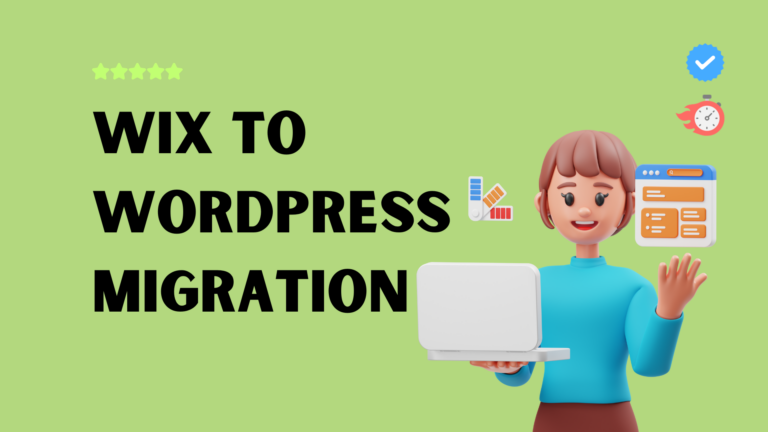Converting a Wix website to WordPress can be a bit of a complex process, as the two platforms have different infrastructures and coding systems. Here are several methods to achieve this conversion, including a manual way using Elementor or other page builders:
Manual Conversion with Elementor or Other Page Builders:
This method involves recreating your Wix website’s design and content within WordPress using a page builder like Elementor. Here are the steps:
a. Set Up WordPress: Install and configure WordPress on your hosting server.
b. Choose a Theme: Select a WordPress theme that closely resembles the design of your Wix site or is customizable to match it.
c. Install Elementor or another Page Builder: Install a page builder plugin like Elementor or Beaver Builder. These plugins allow you to create custom page layouts.
d. Content Migration: Manually copy and paste the text content from your Wix site into your new WordPress pages.Download and save images from your Wix site, then upload and insert them into the corresponding WordPress pages.Recreate the structure and design of your Wix site using the page builder. This might involve adding columns, widgets, and other design elements.
e. Recreate Forms and Functionality: If your Wix site had forms, e-commerce features, or other custom functionality, you’ll need to find equivalent plugins or solutions for WordPress.
f. SEO and Permalinks: Set up SEO settings and recreate permalinks to match your old Wix URLs for better search engine optimization.
g. Testing and Optimization: Thoroughly test your new WordPress site to ensure everything works as expected. Optimize for performance and responsiveness.
h. Domain and DNS Settings: Update your domain’s DNS settings to point to your new WordPress site.
i. 301 Redirects: Implement 301 redirects from your old Wix URLs to your new WordPress URLs to preserve SEO and user experience.
Automated Conversion Services:
There are online services and tools available that claim to convert Wix sites to WordPress automatically. These services vary in quality, and results may not be perfect, but they can provide a starting point for your migration.
Hire a Professional:
If the manual conversion seems too complicated or time-consuming, you can hire a web development professional or agency with experience in both Wix and WordPress to handle the migration for you. They can ensure a seamless transition and maintain the design and functionality of your original site.
Content Export/Import: You can export your content from Wix in a structured format and import it into WordPress. However, this method may not handle the design and layout of your site, so you’d still need to rebuild it in WordPress manually.
Custom Development: In some cases, especially if you have complex features on your Wix site, a custom development approach may be needed to recreate those features in WordPress. This would likely involve a combination of custom coding and using plugins.
Remember that the complexity of your website, the number of pages, the design intricacy, and the functionality will all influence the time and effort required for the conversion. It’s important to back up your Wix website before making any changes and carefully plan the migration to minimize disruptions and SEO impact.
